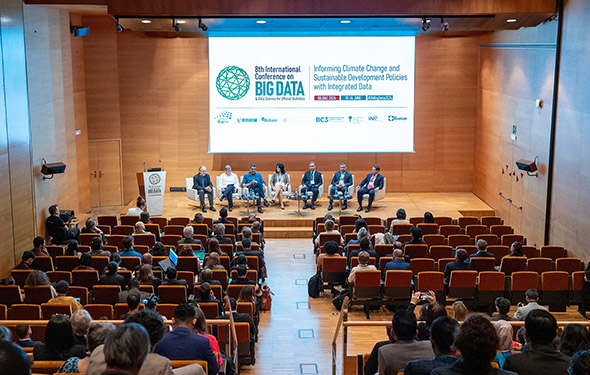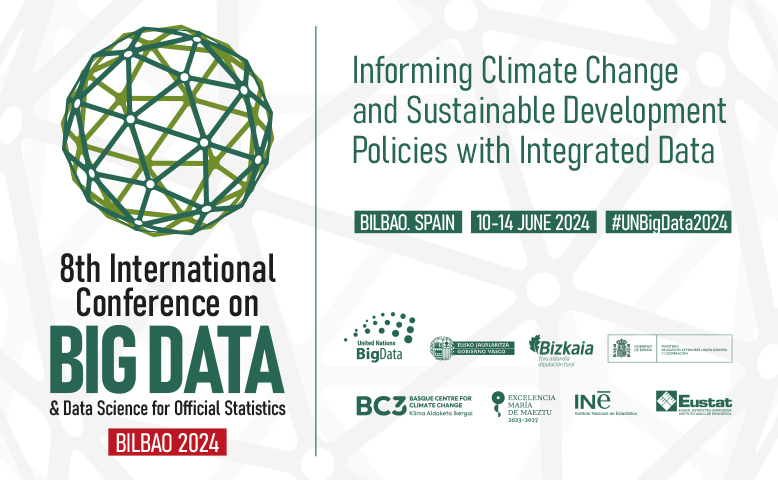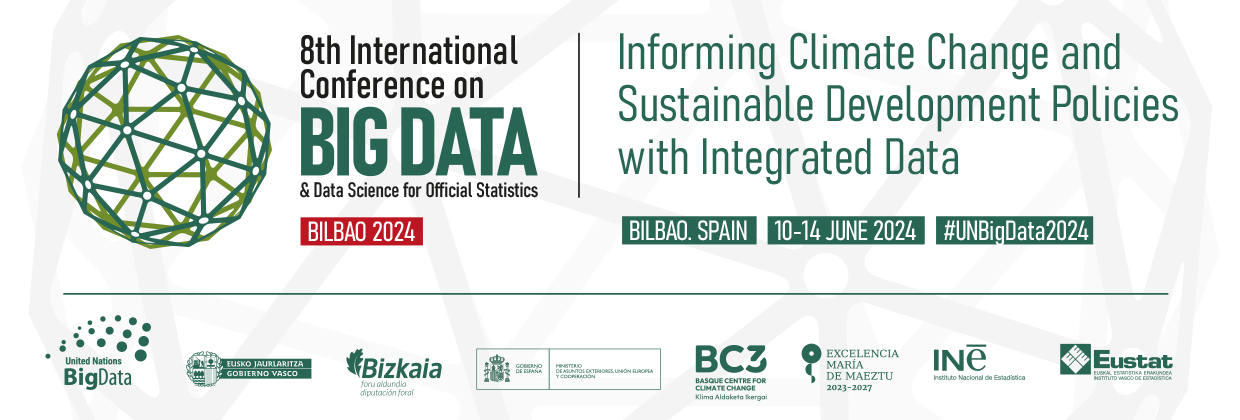


Testimonials
Informing Climate Change and Sustainable Development policies with integrated data
As the world grapples with numerous global challenges, including environmental issues, climate change, health crises, food insecurity, economic recovery, and human displacement, the need for knowledge integration has never been more critical. Amid a data landscape with fast-increasing volumes of data, information remains compartmentalised to pre-defined scales and fields, rarely building its way up to collective knowledge. The statistical community, the data science community, the geospatial community and the modelling community are tasked with delivering this integrated knowledge, to shed light on the ongoing “wicked problems”—intertwined, multistakeholder and with potential solutions dependent on subjective, competing interests.
The purpose of the conference is to address and share knowledge on these emerging issues that require the timely and flexible production of integrated scientific, statistical and geospatial information. This involves collaboration with strategic partners from the public and private sectors, as well as from academic and research institutes, and needs a paradigm shift that will favour open synthesis to contribute and reuse knowledge and apply it toward decision making. The conference will consist of a ministerial opening, high-level panels, technical sessions as well as a several workshops. The overall theme of the conference is “Informing Climate Change and Sustainable Development policies with integrated data”.
Policy Themes
Climate change
Biodiversity loss
Sustainability of tourism
Each of these key policy themes requires a consideration of multiple policy levers spanning economic, social and environmental dimensions, that recognise the integrated nature of the issues. This helps ensure that collectively, efforts are multiplicative and that all policy actors amplify each other's work. For example, as significant contributors to greenhouse emissions, food systems are inextricably linked with climate change, biodiversity loss and pollution.
The integration streams of the conference are the integration of statistical and geospatial information, the local to global levels in policy and governance (SDGs localization), and the application of AI, data science and data interoperability, such as in ARIES for SEEA and in UN Data Commons.